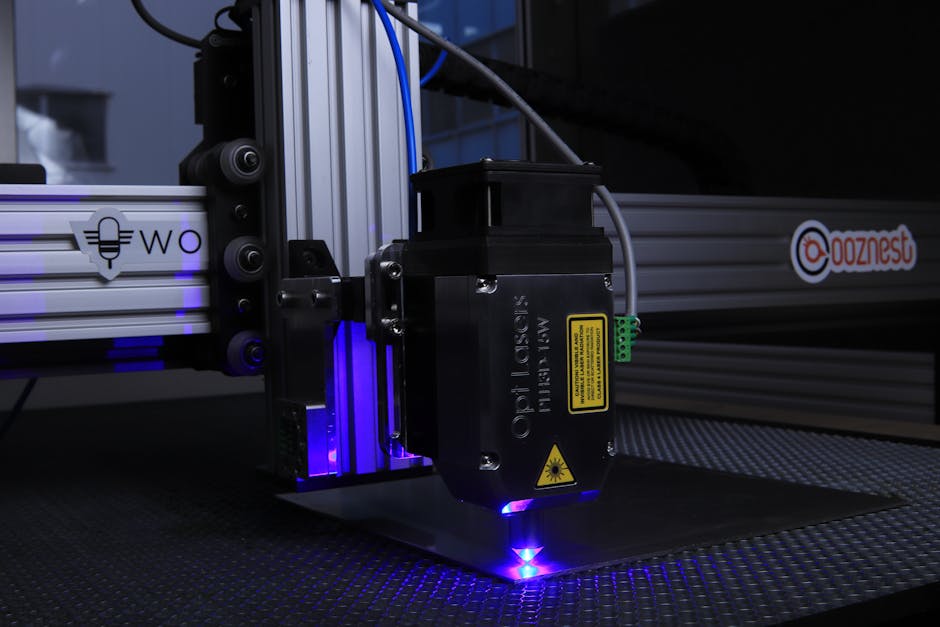Industrial Automation Technologies: Powering the Next Generation of Manufacturing
Industrial automation technologies are transforming the manufacturing sector by enhancing productivity, reducing operational costs, and improving product quality. From robotics to artificial intelligence (AI), these advancements are reshaping how goods are produced, enabling businesses to meet growing demands with greater efficiency.

While automation has long been a staple in industrial settings, recent developments in technology have pushed its capabilities far beyond traditional applications.
As industries strive for leaner operations and higher output, automation technologies offer solutions that address these challenges head-on. By integrating smart systems, manufacturers can streamline processes, enhance decision-making through data analytics, and reduce reliance on human intervention for repetitive tasks. This shift is not only altering the way products are made but also creating new opportunities for innovation across various sectors.
Key Components of Industrial Automation
The foundation of industrial automation lies in several core technologies. Each plays a unique role in optimizing manufacturing processes:
- Robotics: Robots are widely used for tasks requiring precision, speed, and consistency. They excel in assembly lines, material handling, and packaging.
- Artificial Intelligence and Machine Learning: AI-driven systems analyze vast amounts of data to optimize production schedules, predict maintenance needs, and ensure quality control.
- Programmable Logic Controllers (PLCs): PLCs serve as the brains behind automated systems, controlling machinery and processes with unmatched reliability.
- Internet of Things (IoT): IoT-enabled devices collect real-time data from machines, allowing for better monitoring and predictive maintenance.
- Advanced Sensors: Modern sensors provide accurate measurements of temperature, pressure, motion, and other critical parameters to maintain smooth operations.
Benefits of Automation in Manufacturing
The adoption of industrial automation brings numerous benefits to manufacturers:
- Increased Efficiency: Automated systems operate faster and with fewer errors compared to manual labor.
- Cost Savings: By reducing waste and energy consumption, companies can lower operational expenses.
- Enhanced Product Quality: Automation ensures consistent quality by minimizing human error in production processes.
- Workplace Safety: Dangerous tasks are now handled by machines, reducing the risk of accidents for human workers.
The Role of Data Analytics
A significant aspect of modern automation is the use of data analytics to improve decision-making. Machines equipped with IoT devices generate massive amounts of data during production. This information can be analyzed to identify inefficiencies, predict equipment failures before they occur, and optimize supply chain management. Companies leveraging such insights gain a competitive edge by responding quickly to market demands and maintaining high levels of productivity.
Sustainability Through Automation
Automation technologies also contribute to environmental sustainability by enabling energy-efficient operations and reducing waste. Smart sensors can detect leaks or inefficiencies in real time, allowing companies to take immediate corrective action. Automated recycling systems help repurpose materials more effectively, further reducing environmental impact. These advancements align with global efforts to create more sustainable industries while maintaining economic growth.
The Challenges Ahead
Despite its many advantages, implementing automation comes with challenges. High initial investment costs often deter small and medium-sized enterprises (SMEs) from adopting these technologies. There is growing concern about job displacement as machines replace human labor in certain roles. To address these issues, businesses must focus on upskilling workers to adapt to new roles within automated environments while governments may consider policies that support a smoother transition toward automation-led industries.
The integration of industrial automation technologies is shaping the manufacturing industry into one that is smarter, faster, and more efficient. With innovations like robotics, AI-powered analytics, and IoT connectivity leading the charge, companies can achieve unprecedented levels of productivity while addressing sustainability goals. As challenges such as cost barriers and workforce changes persist, collaborative efforts between businesses and policymakers will be essential to ensure that this technological shift benefits all stakeholders involved.
References: Forbes, Wall Street Journal, McKinsey & Company
